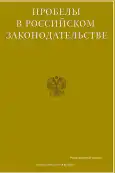Crime in the Sphere of Information and Communication Technologies as a Problem of the Information Society
- Authors: Khamurzov A.T.1
-
Affiliations:
- North Caucasus Institute for Advanced Studies (branch) of the Krasnodar University of the Ministry of Internal Affairs of Russia
- Issue: Vol 15, No 4 (2022)
- Pages: 265-269
- Section: Articles
- URL: https://bakhtiniada.ru/2072-3164/article/view/147567
- ID: 147567
Cite item
Abstract
The purpose of this study was to study the impact of globalization and informatization on crime in cyberspace. In the era of globalization and digitalization, all data, personal information and most of the money of people are on electronic custodians, smart phones and personal computers. However, such a sharp transformation of society has a big minus, which was expressed in the development of such a negative phenomenon as cybercrime. Cybercrime is not yet a fully understood phenomenon and the methodology for combating it has not yet been fully formed. Cybercrimes include crimes committed by using a personal computer to create virus programs, and the commission of computer attacks or theft of personal information and funds of individuals and legal entities. The development of information and communication technologies is the root cause of the emergence of cybercriminals. The weakness of the law enforcement system in the fight against cybercrime is due to the fact that they did not encounter a large number of hacker attacks and most of them were carried out by incompetent hackers who made banal mistakes and it was easy to track them down and bring them to justice, unlike their Western counterparts, who I had to fight with top-level specialists who left no traces and worked from the shadows. It is almost impossible to track them down and catch them. Thus, it becomes clear that our law enforcement agencies do not have, as such, experience in dealing with cybercriminals, as a result of which they have the opportunity to commit crimes and go unpunished in most cases. To prevent such situations in the future, it is necessary to prepare future police officers to fight cybercrime. To do this, in the process of training, they must study the experience of Western intelligence agencies in countering cybercrime. As a result, we will get specialists in the fight against cybercrime at the headquarters, whose task will be to suppress and prevent the commission of cybercrimes.
Keywords
Full Text
##article.viewOnOriginalSite##About the authors
Azamat Tolevich Khamurzov
North Caucasus Institute for Advanced Studies (branch) of the Krasnodar University of the Ministry of Internal Affairs of Russia
Email: khamurzovazamat@gmail.com
Police Major, lecturer at the Department of Fire Training Nalchik, Russia
References
- Abidov R.R. Globalization of the information space as a resource base for cyberterrorism // Gaps in Russian legislation. 2021. V. 14. No. 4. pp. 116-119.
- Gedgafov M.M. The development of cyberterrorism in the context of the globalization of the information space // Education and Law. 2021. No. 6. pp. 304-308.
- Zvereva E.B. Cybercrime as a threat to the security of modern society: types, features, methods of struggle and prevention // Young scientist. 2020. No. 10 (300). pp. 35-37.
- Kamergoev B.M. Cybercrime as a phenomenon of cyberterrorism in the global information space // In the collection: Intellectual capital of the XXI century. Collection of articles of the IV International Research Competition. Penza, 2021, pp. 56-58.
- Karelina E.Yu. Cybersecurity of the banking sector as an integral part of the digital economy of Russia // In the collection: Modern technologies in the world scientific space. Collection of articles of the International scientific-practical conference. 2019. pp. 166-175.
- Ordokov M.Kh., Shafieva E.T. The main trends in the fight against cyber fraud // Gaps in Russian legislation. 2021. V. 14. No. 4. pp. 108-111.
- Tkhazeplov T.M. The Internet as one of the ways to involve individuals in extremist activities // Journal of Applied Research. 2022. V. 1. No. 3. pp. 81-84.
- Fakov A.M. Cyberterrorism in social networks as a real threat to state security // Eurasian Law Journal. 2020. No. 5 (144). pp. 445-446.
- Khamurzov A.T. Cyberterrorism: New Challenges and Countermeasures // Journal of Applied Research. 2021. V. 2. No. 3. pp. 74-77.
- Khachidogov R.A. Cyberterrorism in the global information space: new challenges and countermeasures // Education and law. 2021. No. 6. pp. 362-366.
Supplementary files








